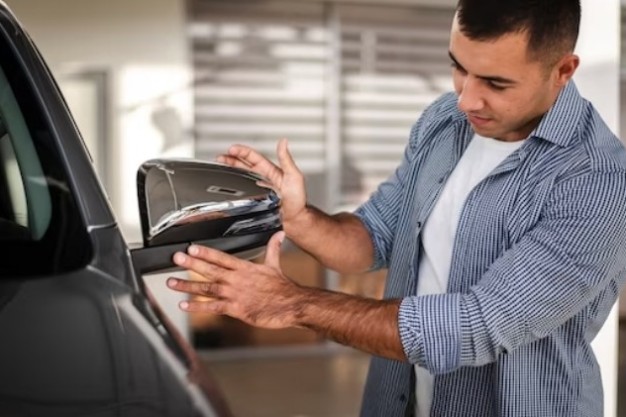
Car Care Tips: Ensuring Optimal Performance and Longevity
June, 2023
Listen to this Article
Introduction:
Maintaining your vehicle is of utmost importance when it comes to preserving its performance and lifespan. Failure to prioritize basic maintenance tasks can lead to expensive repairs and a decline in your car's resale value. However, by adhering to a set of simple yet effective car care tips, you can keep your vehicle in excellent shape and protect its value. In this comprehensive guide, we will delve into nine essential tips that will assist you in effectively maintaining your car.
1. Regularly Clean Your Vehicle:
Regular washing and waxing play a crucial role in safeguarding your car's paint job and preventing corrosion, especially if you reside in a cold climate where road salt is prevalent. It is advisable to schedule routine wash and wax treatments every six months or consider undertaking the task yourself to save on costs. By consistently maintaining your car's appearance, you can ensure that its value remains intact when the time comes to sell.
2. Adhere to Routine Maintenance:
To ascertain the optimal maintenance schedule for your vehicle, consult your car's manual or reach out to the dealership. Most vehicles necessitate routine maintenance every 5,000 miles or six months. During these maintenance sessions, mechanics conduct oil changes and comprehensive multi-point inspections to ensure that your vehicle is operating smoothly. Additionally, they inspect and replace worn components such as air filters and windshield wipers. Furthermore, fluid levels are examined, and any potential issues that require attention are promptly addressed. Acquiring basic maintenance knowledge, such as performing oil changes, can yield long-term cost savings.
3. Do Not Neglect Major Services:
Flight cancellations or delays have become increasingly common, often causing significant disruptions to travel plans. Whether it's due to airline issues, natural disasters, or personal circumstances, the repercussions can be frustrating and costly. However, with travel insurance, you can seek reimbursement or receive a specified amount as outlined in your policy. For instance, if you find yourself needing to cancel your trip due to unforeseen illness or a sudden family bereavement, your insurance will cover the unused costs of your accommodations and travel tickets. In the event of a delayed flight, your travel policy will extend coverage to additional expenses, such as unplanned hotel stays and meals.
4.Regularly Check Your Brakes:
While there is no set frequency for brake checks, it is advisable to have them inspected each time your tires are rotated or at least every six months. If you notice any changes in your braking system while driving, it is best to have them inspected promptly to ensure your safety on the road.
5. Monitor Fluid Levels:
Make it a habit to routinely check your car's fluid levels, ideally once a month. Create a checklist that encompasses engine oil, coolant, power steering fluid, windshield washer fluid, brake fluid, and transmission fluid. Low fluid levels may indicate significant issues with your vehicle, and addressing them early on can help prevent costly repairs in the future.
6. Pay Attention to Tire Tread:
Monitoring your tire tread is vital for maintaining control over your vehicle, particularly during adverse weather conditions. Employ a tread depth gauge or a penny to gauge your tire tread. Insert the penny upside down into the tread with Abraham Lincoln's face facing outward. If his head is fully visible, it is time to contemplate investing in new tires. For confirmation and assistance, consult a tire dealer.
7. Ensure Proper Tire Inflation:
Optimal tire inflation is pivotal for vehicle safety and fuel efficiency. Some newer vehicles are equipped with built-in tire pressure monitoring systems. However, if your car lacks this feature, invest in a reliable tire-pressure gauge to regularly monitor your tire's air levels. Refer to the sticker located inside the driver's door pillar for the recommended inflation levels and ensure that your tires are inflated correctly.
8. Do Not Ignore Leaks, Sounds, or Smells:
Fluid leaks, peculiar noises, and unfamiliar odors should never be disregarded, as they may indicate underlying issues with your vehicle. Promptly investigate these warning signs to prevent further damage and costly repairs down the line.
9. Pay Attention to Alerts:
Whether it is the check engine light or any other unfamiliar icon on your car's dashboard, ignoring alerts is ill-advised. These alerts serve as your vehicle's method of communication, notifying you of potential issues. Even if the problem seems minor, it is better to err on the side of caution. Take your car to a professional for a thorough inspection.
Conclusion
Caring for your car should not be a complicated or exorbitant endeavor. By incorporating these nine essential car care tips into your routine, you can ensure that your vehicle remains in exceptional condition, thereby saving money on repairs and preserving its resale value. Regular cleaning, adherence to routine maintenance schedules, and immediate attention to potential issues will significantly contribute to extending the lifespan of your car. Remember, your vehicle is more than just a mode of transportation; it is an investment that warrants proper care and attention. Embrace the responsibility of car care and relish a safe and reliable ride for years to come.
Also Read: Maximizing Fuel Efficiency: A Comprehensive Guide to Gear Selection
Source: cardekho.com
Back to All: Latest News Navnit group
